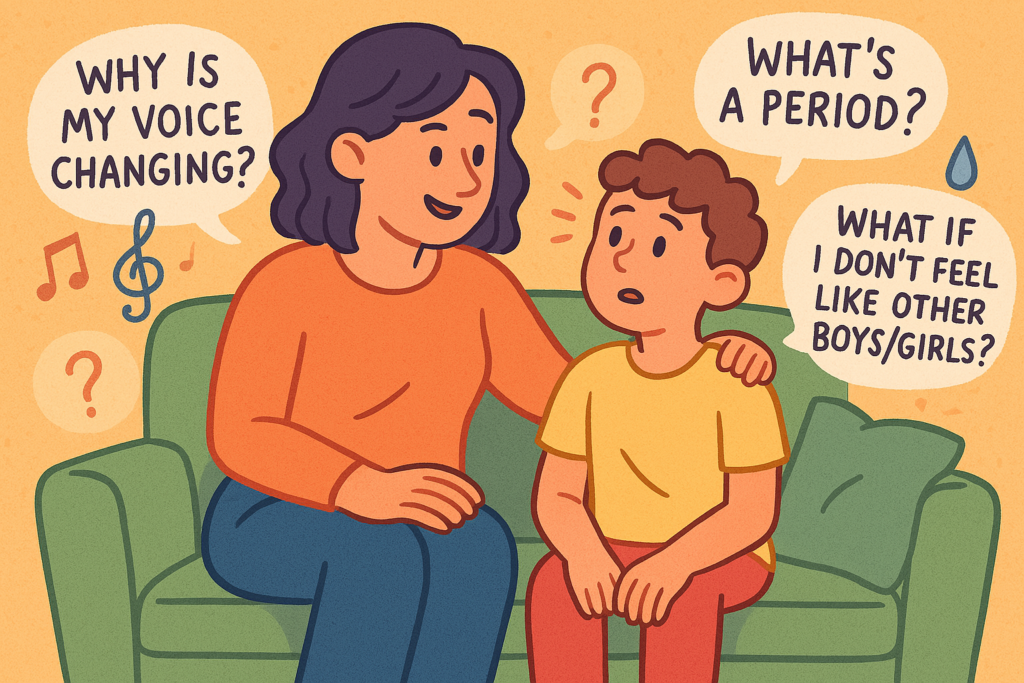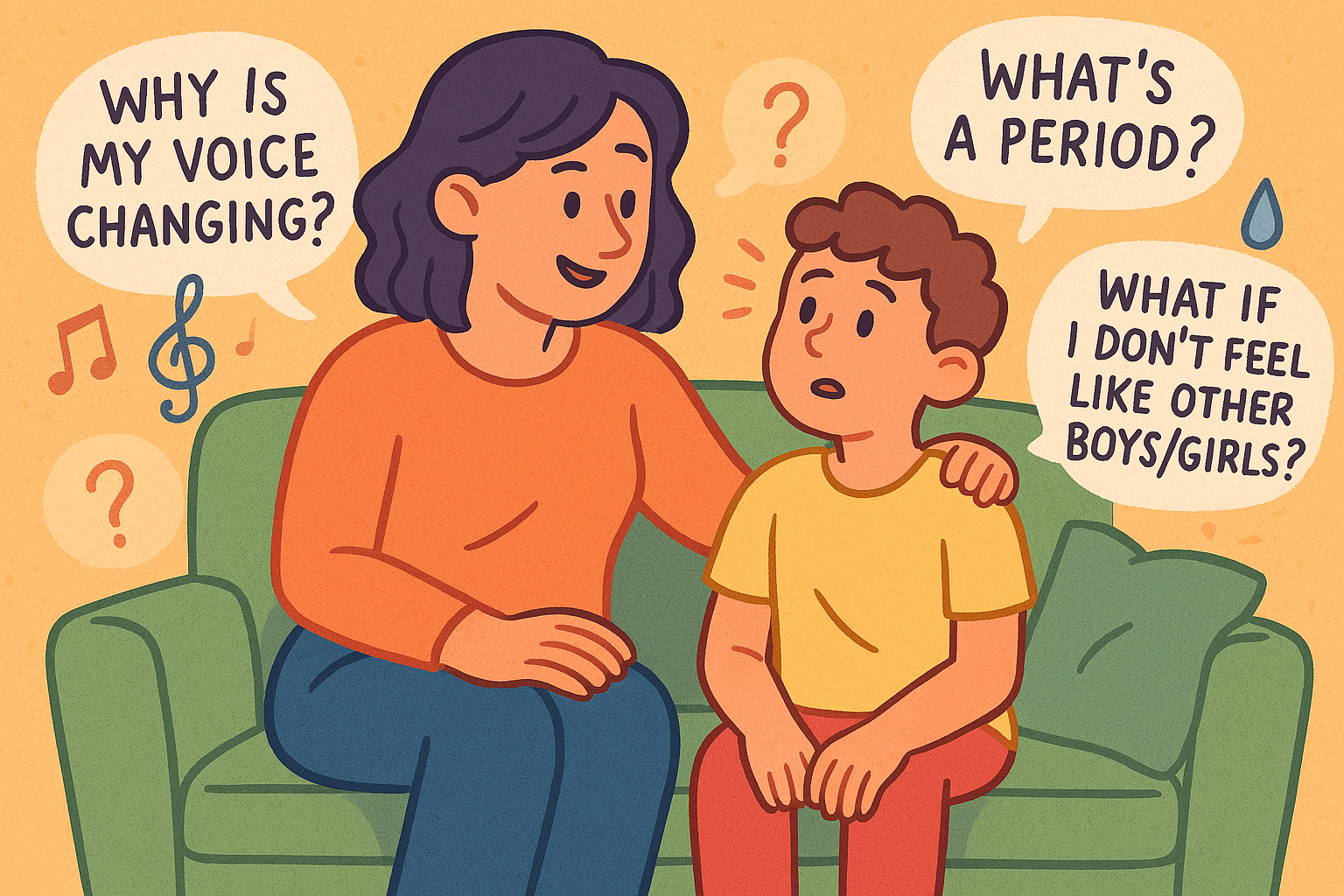Puberty: The Hard Questions & How To Answer Them
Talking to children about puberty is rarely easy, and for many parents, it can feel like the hardest part of parenting. Whether you are home educating, supporting a child who is growing up fast, or preparing for the teenage years ahead, you will likely face tricky or unexpected questions. Many parents worry that they might not know the right answers, or that they will say the wrong thing and make the conversation more awkward. This resource, Puberty: The Hard Questions & How To Answer Them, is here to help.
This printable guide has been carefully written to give parents plain, honest, and supportive answers to the most common and challenging questions children and teens ask about puberty. Questions like “When will I start puberty?”, “What if I don’t like my body?”, “Why is my voice cracking?”, or “What if I like girls and boys?” are all addressed clearly and without judgement. The sheet is fully gender-inclusive, meaning it covers common questions from boys, girls, and young people who may be questioning their gender or identity.

| The Hard Questions & How To Answer Them | |
|---|---|
| Tip for Parents | Children and teens often have awkward or sensitive questions about puberty. This sheet will help you prepare calm, honest, and respectful answers. It will also help you avoid common mistakes that might shut down important conversations. |
| Starting Difficult Conversations |
|
| Things to Avoid |
|
| Common Hard Questions |
|
| Creative Thinking Activities |
|
This resource does more than just list answers — it also teaches you how to answer. Many parents worry not just about what to say, but how to say it. Should you keep it scientific? Should you soften it? Should you wait until they are older? This guide offers practical advice on finding the right words, matching the information to your child’s age and understanding, and keeping the door open for future questions. It reminds parents that you don’t need to know everything straight away — honesty, patience, and listening are just as important as facts.
For home educators, this sheet can be used in several ways. It can prepare you for when questions naturally come up during reading, projects, or everyday life. You could also use it as part of a planned lesson about body changes, relationships, or personal wellbeing. Whether you prefer to sit down for a formal chat or keep things more informal, this guide is adaptable to suit your family.
The questions included are based on real-life concerns children and teens often have, drawn from years of research and common parental experiences. They cover both physical and emotional changes, as well as worries about confidence, relationships, fitting in, and even feelings around identity and attraction.
Most importantly, this sheet encourages parents to approach these subjects with kindness and openness. Even if the questions feel surprising or awkward, children need a calm and trusted adult who they know will listen without judgement. Using this sheet will help you become that person.
